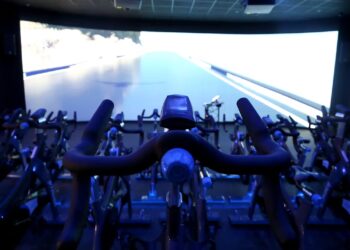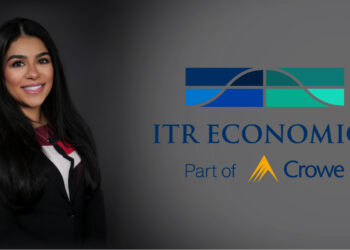 Chez Misko began working at Wisconsin Athletic Club at 16 years of age. Working in a variety of jobs including the front desk and maintenance, he eventually worked his way up to chief operating officer, which is his current position.
Chez Misko began working at Wisconsin Athletic Club at 16 years of age. Working in a variety of jobs including the front desk and maintenance, he eventually worked his way up to chief operating officer, which is his current position.
Here, Misko shares what he learned as a result of his long climb up the ladder, including what he’d tell his 16-year-old self if he could go back.
CS: What are the keys to your success?
CM: Whatever position I had within the company, I always tried to figure out what the best person in the position would act like, look like, be like, and I used that as something to hold myself to.
It gave me some sort of direction. A lot of times when you come into a position, you’re not sure exactly what to do. So, if you emulate or picture what you think the best person in that position [would do], it gives you that direction. I got into the habit of always striving to be the best at whatever I was doing, and that helped me have success in the different positions that I had.
CS: Why do you think that was helpful?
CM: Especially in our industry, [people aren’t] always given a great training program. So there’s a lot of indecision and because of that, sometimes people don’t have the success that they really should have, because they’re waiting for their boss or someone else to give them the green light or the go ahead. From my standpoint, that’s probably the worst thing you can do. You want to be able to take it and run with it right on day one, and that gives you the opportunity to move up within the company.
I think that is why I had success, and [when] I looked at other people in the industry that had success, why they’ve been successful. They’ve done it and they’ve applied it with some sort of action, not just position or title.
CS: What other tips can you share?
CM: If there was a job I wanted, I’d start doing the job without having the role. When I was a personal trainer and I wanted to be a fitness director, I started doing all the things that a fitness director would do. At the time, it made it really hard for the bosses to pass me up, because I was already doing the position. It’s much easier to practice it when you don’t have the responsibility, than once you have it.
I took on as many managers roles as I could so I got good at managing people and working with people and communicating with people, and that helped me and prepared me to take that next step.
CS: Are there any mistakes you made in your younger years that you look back on and think, “Now I would have handled that differently?”
CM: Oh, there were 80 million. I learned way more from my mistakes [than successes].
I think one that’s kind of funny: I’m designing clubs in my current role, and the first front desk we ever designed, we had key slots for our members. The first time I built the key slots they were too big and the key went in too far. The second time I designed a club the key slots were too small, and the third time it was just right.
Again, you have to have a bias for action, and the only way you really do learn is by doing. A lot of times people will spend so much time strategizing things, and you’re never going to know until you do it.
CS: What’s the biggest challenge you have to overcome?
CM: Initially it was my age. There were people that had worked here for 20 years, and I was taking over as manager at 22 years of age, so I think that was probably the hardest thing to overcome. People look at [young age] and don’t trust that you have that ability to do it, when again they’ve been doing it longer than you’ve been alive. But the reality is once you show them you can do something … it’s hard to argue with action.
CS: What would you say is your greatest accomplishment?
CM: The culture that we have here as a business. To me that’s probably the thing that I’m most proud of. A lot of people that used to work here will say that the time they worked here was the best experience they’ve had, because of the people and the culture and the way that they felt coming to work. To me that’s probably the most important thing.
CS: Is there anything else you’d like to share?
CM: This is the thing I share with all of our staff here, that for me is the driving force. I started martial arts when I was 6 years old, and the thing that I learned from martial arts — that to me is still my mantra — is being content at the level you’ve already achieved is your first step backwards. I’ve always taken that to heart. Once you get complacent, content and happy, you stop growing, you stop moving forward, you stop being the best that you can be.
What Chez Mikso would tell his 16-year-old self:
-
Always put people first.
-
You’re going to make mistakes, that’s how you learn.
-
It’s okay to spend time delegating and dreaming, not just doing.
-
Listen more, talk less.
-
Being content is your first step backwards — keep moving.
-
Lastly, work hard, have fun and enjoy the ride.
By Rachel Zabonick
Stay ahead in the fitness industry with exclusive updates!
Emily Harbourne is the former assistant editor of Club Solutions Magazine.










